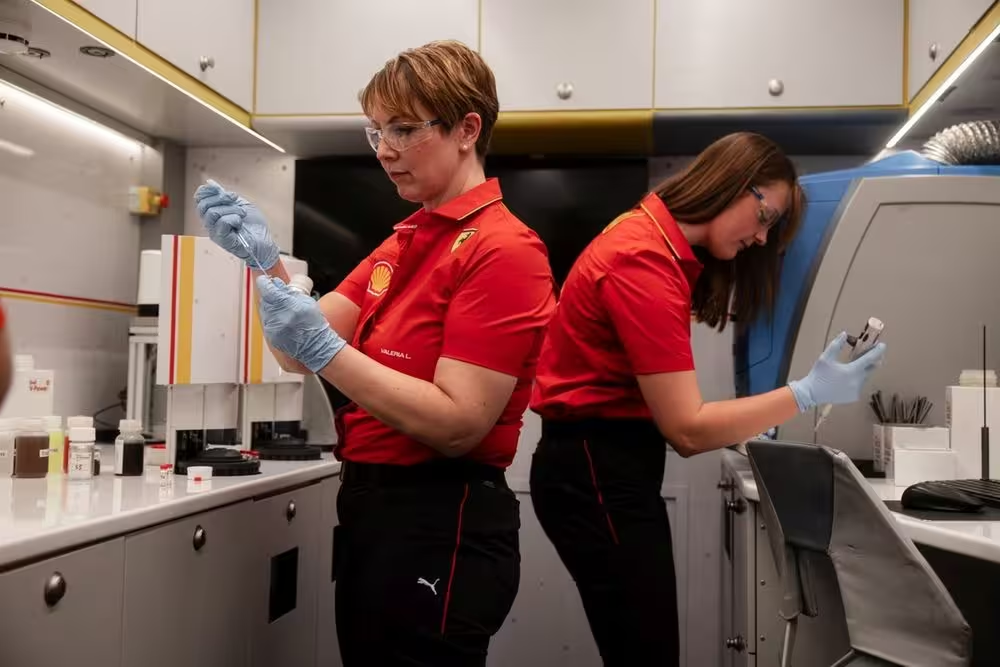At face value, the cars that won this year’s Formula 1 Monaco Grand Prix and Le Mans 24 Hours share little beyond their Ferrari badges.
Charles Leclerc’s SF-24 and the 499P Le Mans Hypercar driven by Nicklas Nielsen, Antonio Fuoco and Miguel Molina would appear to have even less in common with the Chevrolet-powered Team Penske Dallara DW12 in which Josef Newgarden dramatically conquered the Indianapolis 500.
Look carefully however and you’ll spot that each carries the distinctive logos of fuel and oil giant Shell. But its contribution to the winning cars across all three elements of motorsport’s triple crown amounts to far more than a decal, as Shell’s motorsport delivery manager Valeria Loreti explains.
“All the motorsports relationships are for us through partnerships,” the Italian tells Autosport. “It’s not really the sticker on the side of the car; there is a lot of technical discussion behind, a lot of striving to provide for our customers and meet their needs on a dedicated basis.”
The differing rulesets of series in which Shell’s expansive range of partners competes demands that each gets different tailored products and service. Different use cases ensure no shortcuts can be taken. But Loreti is clear that in all cases, there is a common goal: “Maximum performance, maximum efficiency and nowadays also maximum sustainability.”
Whereas F1 and MotoGP, in which Shell partners Ducati, allow multiple fuel manufacturers which puts a premium on development to find an edge on performance and efficiency, this is less of a factor in IndyCar. All teams have since 2023 used Shell’s renewable race fuel, featuring high quantities of second-generation ethanol derived from the waste portion of sugarcane, while this year its Pennzoil sub-brand introduced a new Performance+ Racing Oil product based on re-refined oils.
Loreti (left) oversees Shell’s motorsport partnerships across several disciplines
Photo by: Shell Motorsport
Fuel development is off the table too in the World Endurance Championship and World Rally Championship, where entrants must use control fuel from TotalEnergies and P1 Racing Fuels respectively. But manufacturers are free to work with partners to develop oils and lubricants that in turn feed into commercially available products.
“The big value that we extract from the R&D in motorsport is actually the learnings,” Loreti outlines. “We can really push the boundaries to create…
Click Here to Read the Full Original Article at Autosport.com – Formula 1 – Stories…

